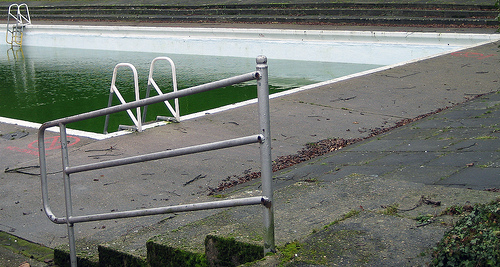An Algae Guide– How can I beat it in my Hot Tub or Pool
 Algae. If there’s a bigger bane to the life of a swimming pool or hot tub owner then we’re yet to see it. We offer different types of water treatment- from Chlorine Shock Granules to Bromine Tablets- but what is the best for you?
Algae. If there’s a bigger bane to the life of a swimming pool or hot tub owner then we’re yet to see it. We offer different types of water treatment- from Chlorine Shock Granules to Bromine Tablets- but what is the best for you?
Did you know that there are over 30,000 different types of algae across the world? To treat it properly you need the best pool algaecides and to know exactly what you’re dealing with. Let’s discover the ins and outs of algae.
What is algae?
Algae is the name given to single-celled plant life that is carried to water by wind and rain. It’s one of the planet’s most widespread living organisms and each variety contains the green pigment chlorophyll.
The types of algae
There are four main variations of algae that plague pool owners:
Green algae – organisms that usually float on the pool or cling to wall. It is the fastest-growing type; if your pool has become infested over 24 hours or less, then it’s probably green algae. Because this algae can cloud the pool it can make a pool dangerous as well as uninviting because it’s difficult to see the bottom of the pool. Before the green algae will manifest itself visibly, you’ll probably notice the sides of your pool becoming slippery.
Mustard algae – consisting of a soft yellowy tone that looks like sand or dirt, this algae mostly only grows in shady areas and so is a particularly common foe for aquariums and other areas that suffer from a lack of light. Pool owners often find that it can manifest itself under pool steps and ladders. Once it’s established in a pool it’s resistant to chlorine and must be treated by a powerful pool algaecide and vigorous brushing.
Pink algae – the good news is that this isn’t actually algae at all. This pink, coppery fungus is easy to eradicate with chlorine treatment and a little elbow grease.
Black algae – bacteria that clings to the surface of a pool in small black or dark green spots sized between 1 and 3cm in diameter. It’s similar to the black algae found in bathroom tiles and although it grows slowly once it’s established it can be very tough to eliminate because it consists of a number of layers that protect each other. Standard chlorine treatments probably won’t eradicate the problem; you’ll need a hardier algaecide and a series of rigorous brushing to get your pool totally clean.
Treating algae
Depending on the type of algae that you’re presented with in your pool, there are many different ways to treat it. Visit our algaecides page today to see which treatment is best for you.
(Image: Harlequeen)